Today we are going to take a look at Neurodeck: Psychological Deckbuilder. This roguelite deckbuilder promises to allow you to explore the human psyche and the many anxieties that lie in it while providing good gameplay. Neurodeck: Psychological Deckbuilder is available on Steam for 11 Euro and 99 cents or your regional equivalent.
With this review you have a choice of either reading it here in text form or listening to the video review. They both contain the same content.
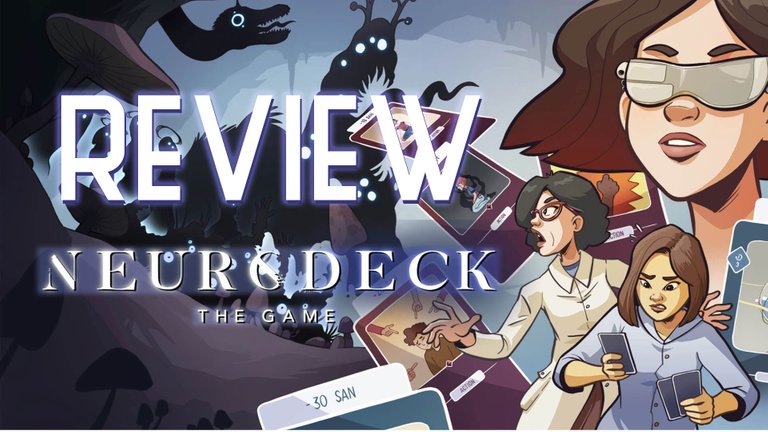
Be sure to check out my other posts about gaming and science @kralizec and visit my YouTube Channel
Buy the game
Watch The Video Review
Read The Text Review
The human psyche is one of those topics that are very hard to explore in any circumstance. And while games allow those who are observant to understand something about themselves we rarely see games attempt to teach us about the human mind. Nonetheless, that’s exactly what Neurodeck aims to do. Teach us about our fears and allow us to understand that we have to fight them to defeat them.
Fear is a tool that was developed by animals over the eons. But it also a tool that often gets out of hand and controls us instead of just being an advisor in hard situations. Whenever fear surpasses this line of just being a helpful tool it is known as a phobia. And it’s precisely phobias that you will be battling against in this deckbuilder roguelite game from TavroxGames.Making a game that would correctly display the battle of humans against phobias is not easy to task to take up. Especially for your first game and this is TavroxGames’ first game ever. Yet. the topic is especially these days, so important and needs to be tackled by more games.
The question is – what exactly makes the topic so hard to approach? Well, it’s a combination of many things. First, the fears and phobias themselves aren’t the best-understood subjects themselves and social sciences still have a lot to learn not only about them but especially about what the best ways to battle them are. Secondly, you need to build a fun game around the knowledge we have about fears and phobias.
The way Neurodeck approaches this seems to be a pretty good idea. Deckbuilder roguelites are very popular and can be built with a variety of systems that can support almost any theme. And let’s be honest, it’s the theme that often drives the sales of deckbuilder roguelites more than the gameplay itself at least before word-of-mouth spreads that they also have good gameplay. And the theme of Neurodeck is amazing and the game works well to make sure the theme permeates through all of the game. The graphics, the ways you progress, the names of the cards, and the enemies all make you feel you are exploring phobias and learning about them.
But sadly, that’s all. It’s just a feeling of learning. There is so little actual learning in the game that it truly makes me sad. This was just a golden opportunity to combine actual information with fun and somehow it was missed. While there are stories the game allows you to read to get at least some insight into psychological issues they are hidden behind a button that needs to be clicked. Why? There’s empty space there either way on which the story could just unfold when you click the button. Why not just have it there from the beginning? This will just make most gamers ignore it completely.
The same goes for the phobias themselves. Their descriptions are about what kind of an enemy to expect gameplay-wise and even the games collection just forgoes giving even basic descriptions of the phobias. Yes, those who are interested will just open Google and search for them gaining a lot more info in the process but well, that forces you out of the game. Giving us at the very least the basic descriptions of the phobias could push so many people into being interested in them and learning more later when they are finished playing the game.
So… the theme of Neurodeck has – sadly – been somewhat squandered. But that doesn’t mean Neurodeck is a bad game as gameplay is king as we all know.
The gameplay is quite… okay. It’s nothing exceptional but at the same time, it’s not exactly bad. It does suffer from an overabundance of mechanics. The developers obviously had many ideas but they forget one of the important principles of game development. Less is more. At first glance, it doesn’t seem too bad. You have stamina and health (called sanity). Stamina is the resource needed to play cards that regenerates slowly at the end of turns and when you run of out sanity you... die. Which honestly makes little sense when I go back to the theme. Going insane doesn’t mean you die when comes to mental disease. But back to the mechanics.
Quickly, you will discover that you need another resource to play cards. Actions. Each use of a card requires an action and you have only three actions altogether. And after my dozens of hours played I have not encountered a mechanic that would provide you with more actions. Well, to a degree, some cards do have "give you an action" and some minor benefits as their text. But since they themselves require an action they essentially read “gain a minor benefit”. Having either of these two resource management systems alone I would be pretty happy. Either you’d need to make sure you have enough stamina to play the cards you want or you’d have to balance the cost of cards relative to the number of actions you have. But together it can quite often get just slow. Either you have an abundance of stamina but can’t play your cards because you’re allowed to play only three cards per turn or you turn to stamina-heavy cards, can play all of them but very quickly run of stamina.
On top of that, the cards that are heavy on stamina suffer from another problem. The enemies very often attack your stamina instead of your sanity. This makes playing cards heavy on stamina quite hard and honestly not worth it most of the time as they will just get stuck in your hand the majority of the time. So, going back to cheap cards and then you just feel sad because you can’t play more than three per turn.
Well, now already you might be thinking… that’s a lot of things to juggle when it comes to resources. But that’s not all! Then you have items. These are special cards that first need to be equipped (requiring an action) and then can be kept equipped until you want to use them. But even using them requires an action further limiting the possibilities of having really powerful turns. The use of items should have really been free.
All of those systems are just the tip of the system iceberg though. Those are all just related to resource management while battling. Then you have systems related to the roguelite part of Neurodeck. From the stuff that’s obvious and needed in a deckbuilder such as adding or removing cards, through systems that allows you to unlock new cards for future runs, to systems that upgrade your character either by directly increasing your stats or traits providing you with passive benefits.
I really don’t want to spend that much time on all these systems as the review would just keep on going too long but I do have to mention two of them in more detail. Let’s start with the good one. The trait system. Here you have to answer a short survey that leads to you getting a trait that is somewhat correlated to your answers. This is an interesting system instead of the typical relics that just boost your character and I really liked it. On the other hand, there's the system that unlocks cards for future runs. This system works similarly to the trait system, also requiring you to pick choices that lead to a card being unlocked but has two huge problems. The first being very few unlocks available at the start and the second and bigger one being the fact that you can either make your character stronger or unlock a card. And that’s a choice I don’t feel should be made. Just give me the cards for progressing, don’t force me to make me weaker in this run to potentially get something in a future run.
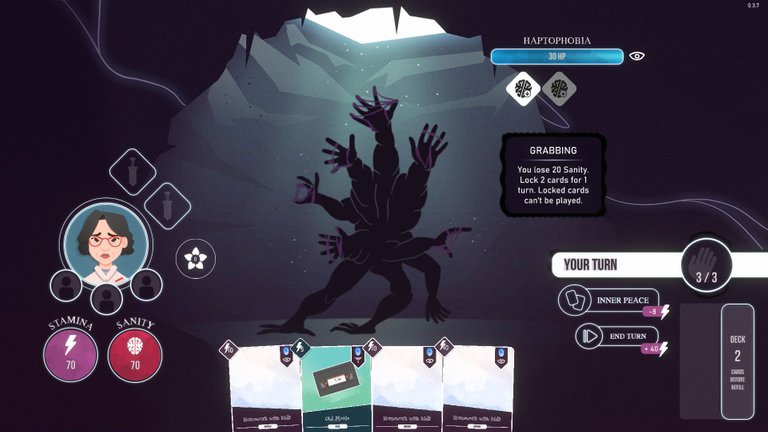
Conclusion
So… in conclusion: Neurodeck: Psychological Deckbuilder is a game that sadly, just didn’t impress me. And I was really hoping it would because I wanted to be able to recommend it to gamers so they can learn about psychology. But, it squandered this opportunity. Not only is it over-complicated when it comes to its mechanics making it way too slow. It also failed at the part I felt it could do right as it just doesn’t truly educate on mental problems and just uses them as a theme for a deckbuilder. It’s such a shame.
So, that’s it for today guys. I hope you liked the review and if you did, please up-vote the review, follow my blog, and be sure to share it with your friends. And comment, if you have anything you would like to add. See you guys later with more gaming content.
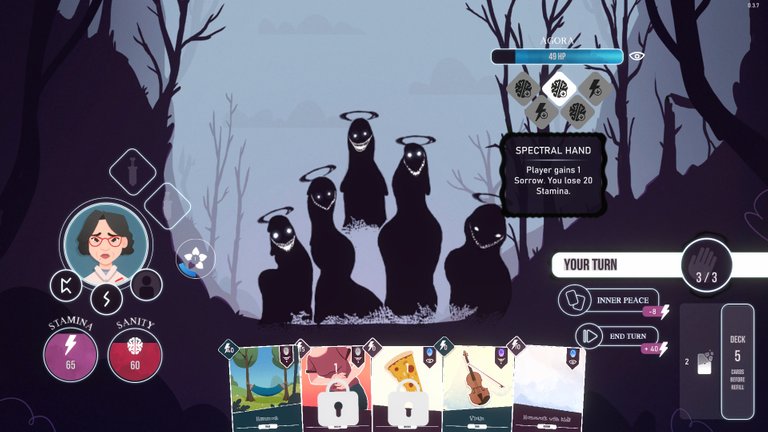
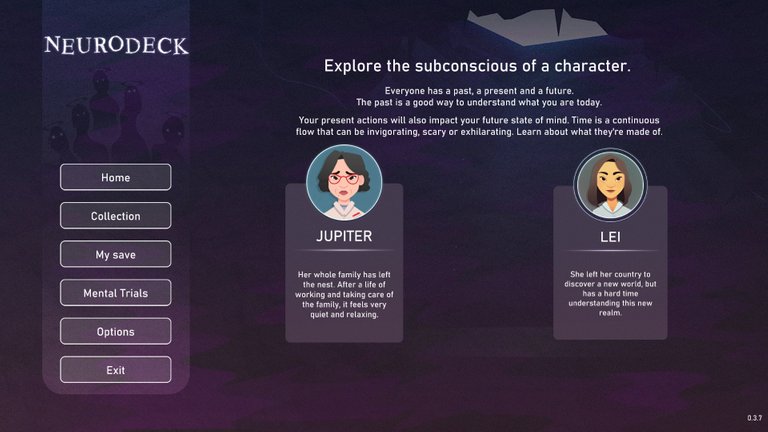
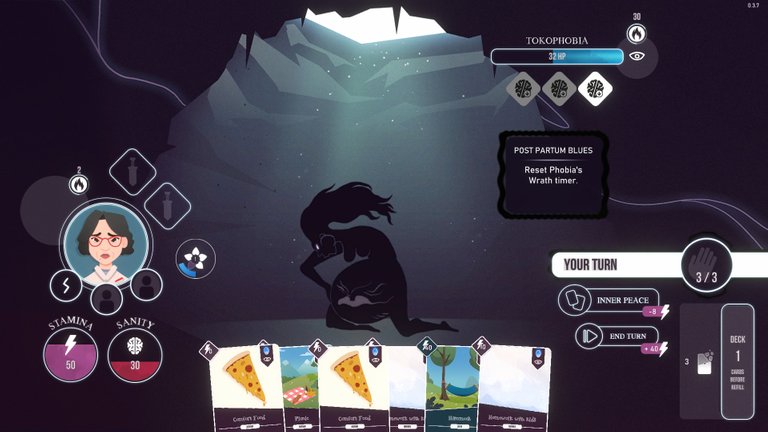
Congratulations @kralizec! You have completed the following achievement on the Hive blockchain and have been rewarded with new badge(s) :
You can view your badges on your board and compare yourself to others in the Ranking
If you no longer want to receive notifications, reply to this comment with the word
STOPTo support your work, I also upvoted your post!
Check out the last post from @hivebuzz: